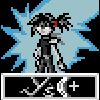One programmer as the core of the team can do amazing things. It isn't an easy road to go alone, but if you take care with your code design*, and keep things nice and modular and reasonably reusable, then it is possible to keep building on things over years and putting out really neat things that customers enjoy.
* And comment the hell out of your code, and clearly state what the code was SUPPOSED to do. "Self-commenting code" is a great theory, right up until the point that you discover a bug and think you trace it back to code you wrote five years ago...
But another key thing to remember: Just because the core of the team is small doesn't mean you can't have a LOT of people working on the project or otherwise involved in it. I picked up a copy of The Banner Saga awhile ago (Core team is 3-4 former BioWare employees I think) and was surprised at the length of the credits for the game. Sure, most of them are the random Kickstarter backers, but between the programmer, designer, artist, and composer is a very long list of musicians, testers, friends and family, and key supporters.
The Banner Saga is another example of "Previous experience in a company", but I feel the point which many miss about that aspect of it isn't the programming and development experience you gain from working in a company. You can gain loads of coding experience while working on your own and posting to the forums here or getting involved in StackOverflow or something. What you Don't gain nearly as much of from that is the networking.
Working all alone makes it hard to build that key skill of "I know a guy..."
Need a massive orchestra for all the music in your game? Well, do you know anyone involved in an orchestra?
Need impressive vocals and high end audio work? Well, do you know anyone in that field?
Possibly my best advice when it comes to small team/no team work: Get outside input on your project early, and get input often. Be prepared to accept harsh criticism. and be willing to accept that your first few runs at it are failures. If you really want to go at it all alone, then be prepared to accept that you had VERY stupid ideas, and be ready to drop them as soon as you can. If you are the one wearing all the hats and solving all the problems, then you are most likely going to take longer to finish everything and put all the development fires out. While you might be able to do more in two years than what two programmers could in just one year, it is still going to take a 'very long time' to complete a project that a team of 40 spent 3 years on, and it is better to accept that your game sucked after 3 months than finally admitting it 5 years later when no one wants to buy it.










